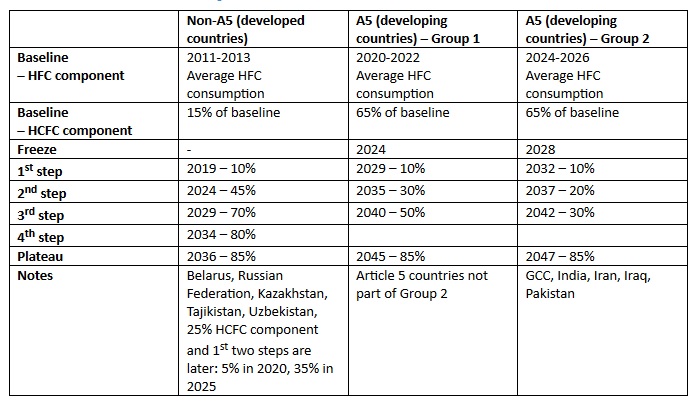17 October 2016
|
| An historic, global deal was signed last week in Kigali, Rwanda which aims to control the production and consumption of hydrofluorocarbons ( HFCs) which are believed to big contributors to rising temperatures around the world. The so-called Montreal Protocol now has an amendment caps HFC use and phases its use down from 2019 among developed and developing countries at different stages. It is hoped that the agreement, which took eight years to negotiate, will avoid 70 billion tons of CO2-equivalent HFC emissions. |
Developing countries, including China, will freeze their HFC consumption from 2024. However, countries including India, Kuwait, Pakistan and Saudi Arabia have agreed to freeze their HFC consumption at a later date.
EIA UK's Climate Campaign Leader, Claire Perry, said:
EIA UK's Climate Campaign Leader, Claire Perry, said:
“Compromises had to be made but 85 per cent of developing countries have committed to the early schedule starting 2024, which is a very significant achievement.
“According to our initial calculations this deal will avoid more than 70 billion tonnes of CO2e emissions by 2050 – which will be close to avoiding a half a degree of warming.”
The Environmental Investigation Agency produced a table explaining the details of the agreement:
Content continues after advertisements









